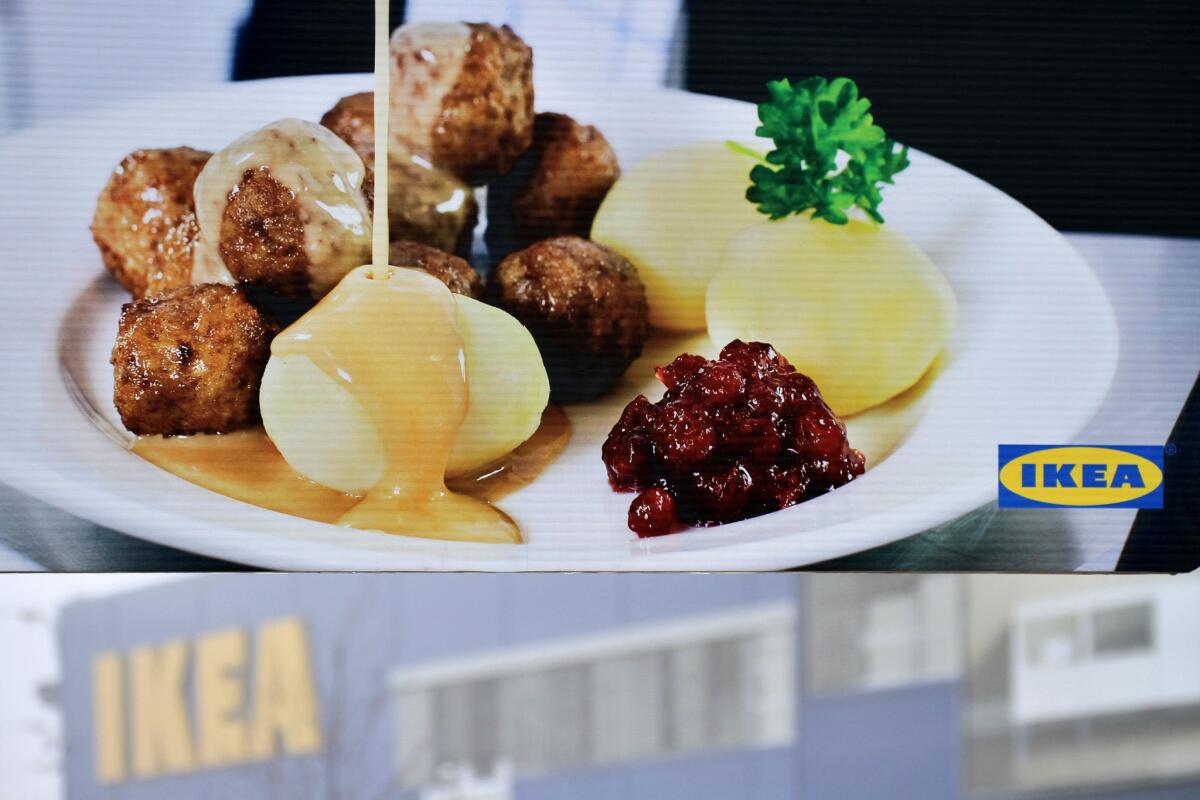Horse meat found in Ikea Swedish meatballs sold in Europe

- Share via
This post has been updated. See below for details.
Burger King, Nestle, Tesco and now Ikea – the European horse meat scandal that has heightened food supply concerns for the last month has now reached the furniture giant’s famed Swedish meatballs.
Inspectors in the Czech Republic said Monday that they found equine evidence in the chain’s frozen meatballs. The affected product was sold as a packaged beef and pork item in more than a dozen European countries but not in the U.S.
The Czech State Veterinary Administration confirmed on its website that samples of the meatballs, which are made in Sweden, contained horse DNA. Shipments of the meatballs have been suspended, according to the agency, which said it sent its findings to European Union authorities.
Supplier Familjen Dafgard wrote on its website that it is “investigating the situation” and that it will “perform ongoing, extensive DNA analysis,” with test results expected in the next few days.
[Updated 9:05 a.m. Feb. 25: In a statement, Ikea said that all meatballs sold in its Ikea U.S. stores are sourced from an American supplier and “contain only beef and pork from animals raised in the U.S. and Canada.”
“Customer confidence is of the utmost importance to Ikea,” the chain said in its statement. “Ikea is committed to serving and selling high quality food that is safe, healthy and produced with care for the environment and the people who produce it. We do not tolerate any other ingredients than the ones stipulated in our recipes or specifications, secured through set standards, certifications and product analysis by accredited laboratories.”]
Ikea is the latest major food provider to be embroiled in the horse meat fiasco, which blew open in January after Irish regulators found products labeled as pure beef that were anything but.
Nestle, the world’s largest food company, discovered traces of equine DNA in some of its Buitoni-brand pasta products last week. Supermarket behemoth Tesco apologized to customers after learning that some of its foodstuffs may have been contaminated.
Last month, Burger King cut ties with an Irish supplier after its patties were roped into the growing collection of lasagnas, shepherd’s pies, pizzas and other items potentially tainted with horse flesh.
[Updated 9:30 a.m. Feb. 25: “Due diligence is becoming ever more important as the global food supply chain expands and becomes more complex,” said Chicago food industry lawyer John T. Shapiro in an email. “The fallout over the horse meat situation is similar to the controversy over pink slime last year – it is as much an issue of labeling and consumer perception.”]
ALSO:
Burger King ditches Irish beef supplier linked to horse meat
Horse meat found in burgers — reportedly as much as one-third
Where’s the beef? Horse meat scam taints European food industries
More to Read
Inside the business of entertainment
The Wide Shot brings you news, analysis and insights on everything from streaming wars to production — and what it all means for the future.
You may occasionally receive promotional content from the Los Angeles Times.









